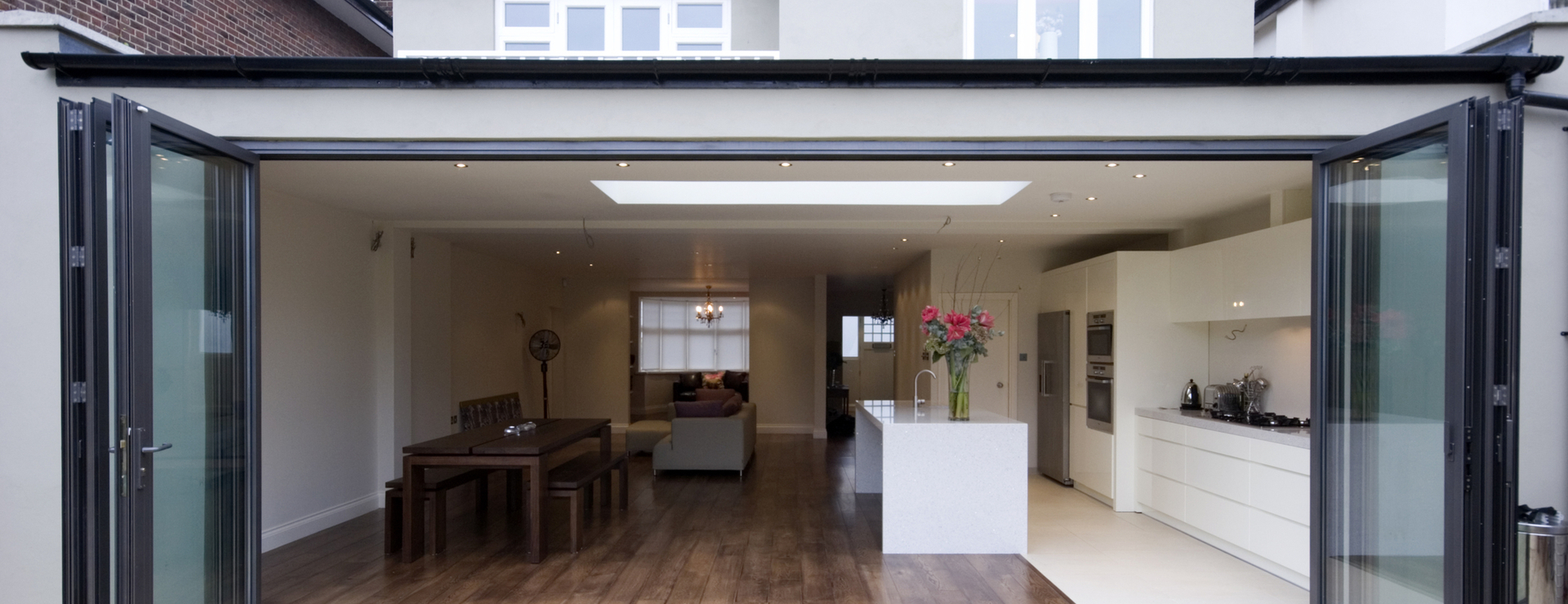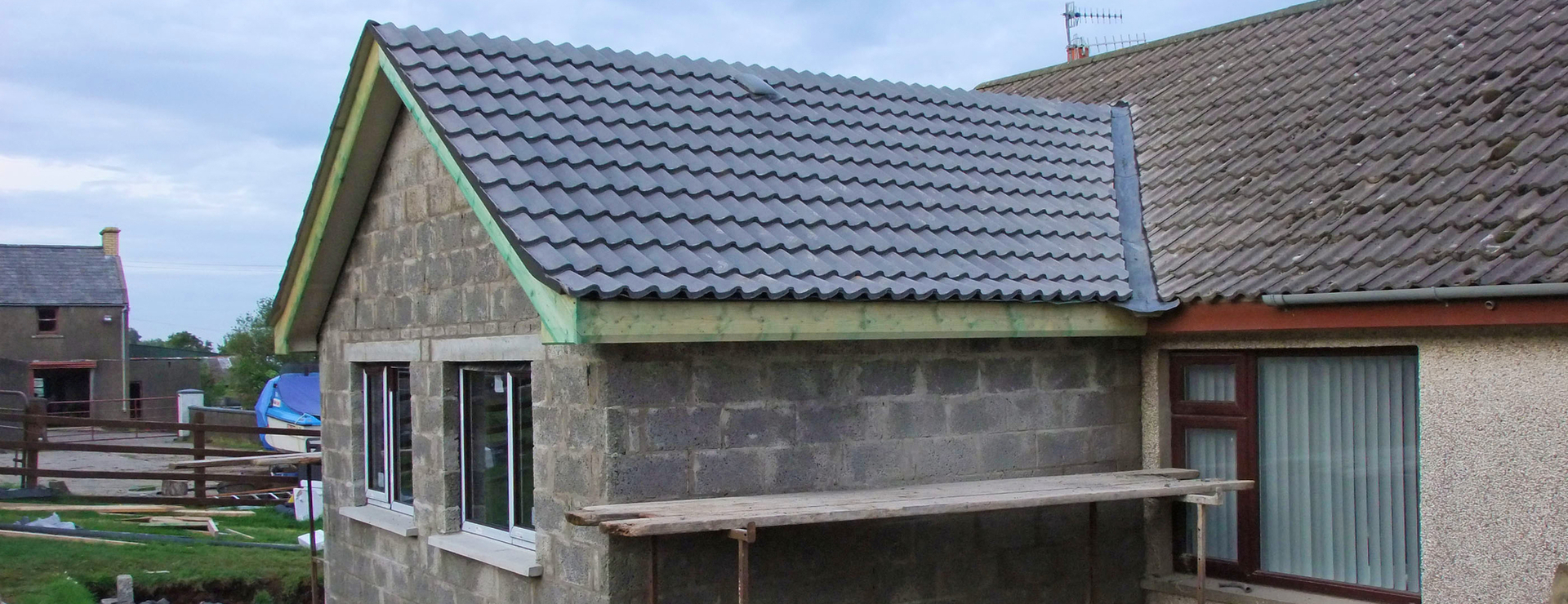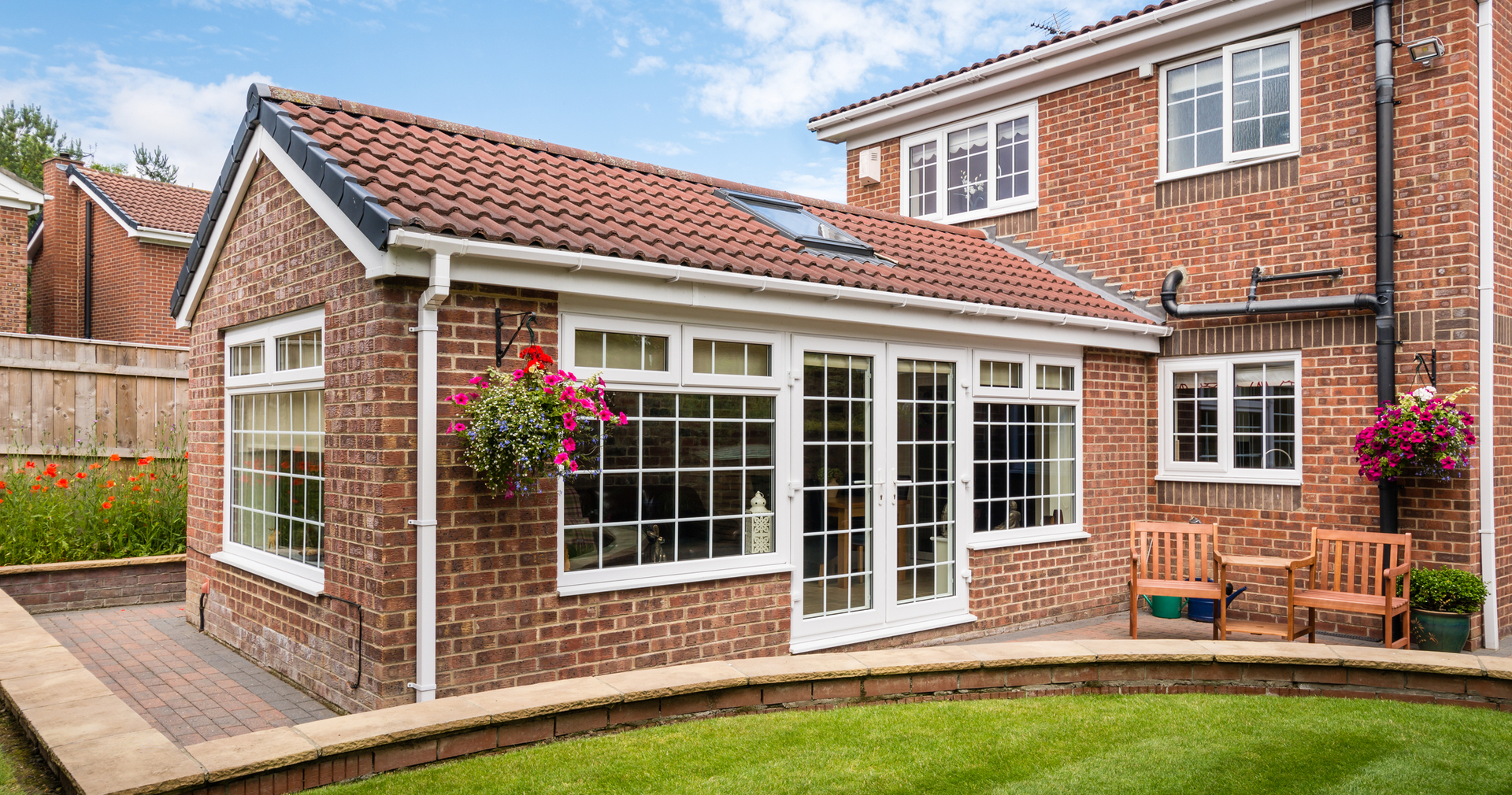The Most Common Roof Extension Types, Shapes, and Designs
Posted on 21st July 2023
When it comes to extending your home, the roof of your extension can be an incredibly important factor in creating the right look and feel. With a range of different shapes and structures to choose from, it is worth taking the time to research each one carefully before making a decision. From flat roofs to gables and hips, there are plenty of options available.
Flat roof extensions

Flat roof extensions are a convenient and cost-effective way of adding extra space to a home. Not only is the construction process simpler due to the lack of pitch, but it also reduces the cost of materials and labour normally associated with pitched roofs. The flat roof design also allows for additional ceiling height compared to pitched roofs, while still adhering to the necessary planning rules.
Gable roofs

Gable roofs are a classic pitched roof design, featuring an inverted “V” shape for a simple yet robust extension roof that will resist the elements and provide a timeless appeal. However, because installing a gable roof increases the height of your home, you may have difficulty getting planning permission.
Butterfly roof
A butterfly roof is a unique style of roofing that has become increasingly popular in recent years. This type of roof features two opposite slopes, one rising higher than the other, which gives it the appearance of a butterfly's wings when viewed from above.
Its distinct shape offers many advantages, including increased airflow and natural light in living spaces as well as an attractive aesthetic to any property. It can also be used to create an expansive deck area on top with views looking out over the surrounding landscape. While butterfly roofs may come at a high cost due to their complex design, they are sure to add value to any home and be admired for generations to come.
Dormer roof
Dormer roofs are a great way to add extra living space, light, and ventilation to an existing roof. Typically seen on the upper floors of a house, they create a small room-like area that can be used as a bedroom or study.
This type of extension also provides the perfect opportunity to add decorative features such as VELUX windows or skylights, adding to the visual appeal of the overall property. Dormers tend to be more affordable than other roof extension types, making them an attractive option for those looking for a budget-friendly solution with maximum impact.
Hip roof
Hip roofs are characterised by all sides that slope downwards towards the walls of the building, creating a triangular shape when viewed from above. This type of roof offers maximum stability and is an ideal choice for areas with high winds or heavy snowfall. It's also a great option if you're looking to add extra living space to your extension without disturbing the existing roof.
Hip and valley roof
A hip and valley roof is an architectural style that has been used for centuries and continues to be a popular choice for modern extensions. It's characterized by multiple intersecting slopes, which can add visual interest as well as increased structural strength. This type of roof requires more skill to build than most other shapes, but its timeless design makes it an excellent option for classic homes or those looking for something unique.
Mansard roof
Mansard roofs feature four sloping sides that come together to form a flat top. This style of roof has been popular in France since the 16th century, and its unique shape can provide extra living space and visual interest to any home. The cost of a mansard roof will depend on its size and complexity, but its distinctive look makes it well worth the investment.
Roof features
Once you have determined the ideal shape type for your extension's roof, it's essential to consider which features you'd like it to have, or if you'd rather keep it all simple and consistent with the rest of the property.
Some popular features may include dormers, ridge vents, skylights that bring light into interior spaces directly from above, gables that can add extra character to an otherwise plain-looking roof slope, and even solar panels or green roofs that not only look great but can also help lower energy costs and reduce environmental impact.
Cost
The cost of a flat roof extension depends largely on the size and complexity, as well as the materials used. A single-story extension with a basic build and felt covering will be at the lower end of the price scale, coming in at around £30K. However, costs can start adding up quickly if you opt for more intricate materials such as insulated single ply membranes, or structures with multiple stories and can reach up to £70K.
Generally speaking, building a pitched roof extension will cost anywhere from £40K to £80K, and even more depending on the complexity of the project. It's important to get quotes from experienced contractors in order to find the most competitive price for your needs.
Summary
When it comes to deciding which extension roof type is best for you, it depends on a variety of factors including your budget, aesthetics, and extent of the project.
If you're hoping to create an extension with plenty of ceiling and roof space, then installing a pitched roof will likely be your best bet. A gable roof is a popular style due to its stylish appearance with the bonus that it’s also energy efficient, strong, and can provide excellent insulation against the elements. While the initial cost may be higher than other designs, its versatility is what usually appeals most to homeowners looking to increase their property's value.
On the other hand flat roofs are the perfect choice if you need an extension but don't have a big budget, making them a popular option for small-scale renovations. Although they can appear basic at first glance, there are still plenty of ways to customise the design and add visual interest. Planting grass or adding decking to create an outdoor space can give your flat roof a unique and eye-catching look. Plus, with proper insulation, a flat roof has the potential to provide year-round comfort and energy savings in comparison to traditional pitched roofs.

All Roofbase branches carry a wide range of products that provide homeowners, builders, roofers, and loft conversion specialists with everything they need for their roofing and home extension projects.
The selection includes pitched and flat roofing materials, insulation, batten, carcassing timber, OSB, VELUX windows, Marley Solartile, cladding systems, roofline products, and much more.
Tagged as: Flat Roofing, Pitched Roofing
Share this post:

